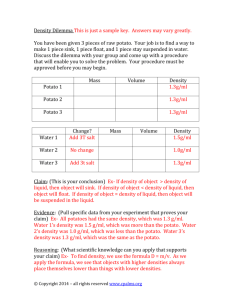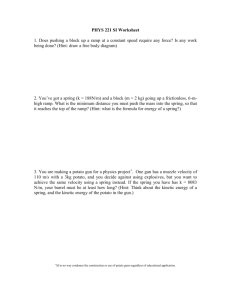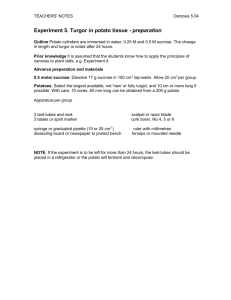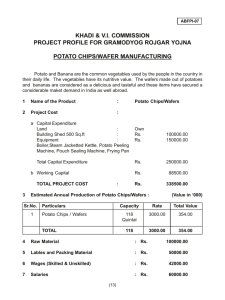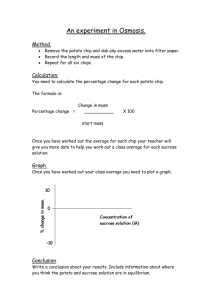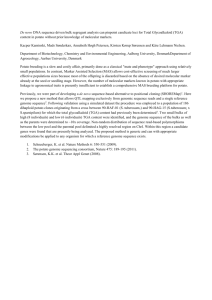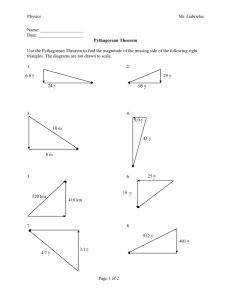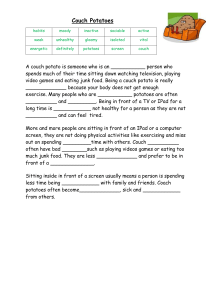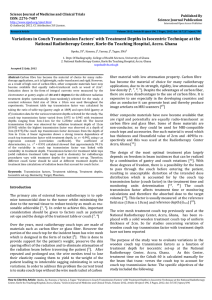as Couch Potato
advertisement
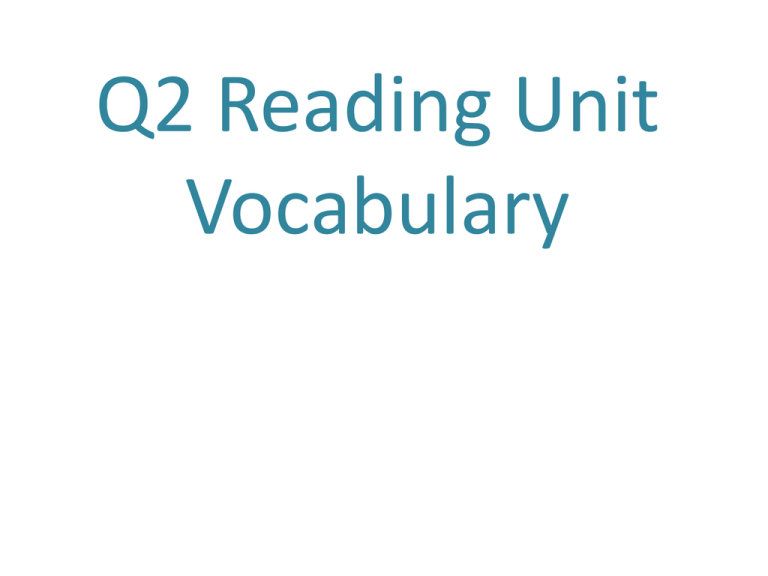
Q2 Reading Unit Vocabulary alliteration Repetition of sounds at the beginning of words Zigmund Zane zig-zagged through the zany zoo zone. onomatopoeia Use of words whose sound suggests their meaning "I'm getting married in the morning! Ding dong! the bells are gonna chime." (Lerner and Loewe, "Get Me to the Church on Time," My Fair Lady) simile Comparison of two things that have some common quality and uses the words like or as Hockey is like reading. You get into it and then you never want to stop. metaphor Comparison of two things that have a common quality and do NOT use like or as Couch Potato: Couch potato = lazy person. A lazy person buries themselves in the cushions of a couch in safe, sedentary comfort, "vegging out" mindlessly in front of the TV, eyes in a fixed, submissive stare. A couch potato never leaves the home, and cannot be motivated, having everything nearby so they never have to move. Compare this to the potato, which is buried in the comfort and providence of soil and to which the only escape from its lifestyle is death. Covered in eyes, but without a brain or muscle, the potato is snuggled and unmotivated. A comfortable sofa is fertile soil for the couch potato. personification Giving human qualities to animals, ideas, or objects The wind stood up and gave a shout. He whistled on his fingers and Kicked the withered leaves about And thumped the branches with his hand And said he'd kill and kill and kill, And so he will and so he will. (James Stephens, "The Wind") hyperbole Exaggeration or overstatement for emphasis "My sister uses so much makeup,... she broke a chisel trying to get it off last night!" Johnny, from Prescott Middle School, Baton Rouge, Louisiana, USA idiom Expression that has a meaning different from the meaning of the individual words Example: It’s raining cats and dogs! (It’s pouring down rain.) speaker The voice that talks to the reader in a poem; not always the poet (similar to a narrator in a work of fiction) tone Shows the writer’s attitude towards his or her subject Examples: humorous, serious, impatient rhythm The pattern of stressed and unstressed syllables in a line of poetry repetition The use of a sound, word, or phrase more than once rhyme The repetition of similar sounds at the ends of words rhyme scheme The pattern of end rhyme in a poem I quarreled with my brother, a I don’t know what about, b One thing led to another a And somehow we fell out. b ---Eleanor Farjeon, from “The Quarrel”
